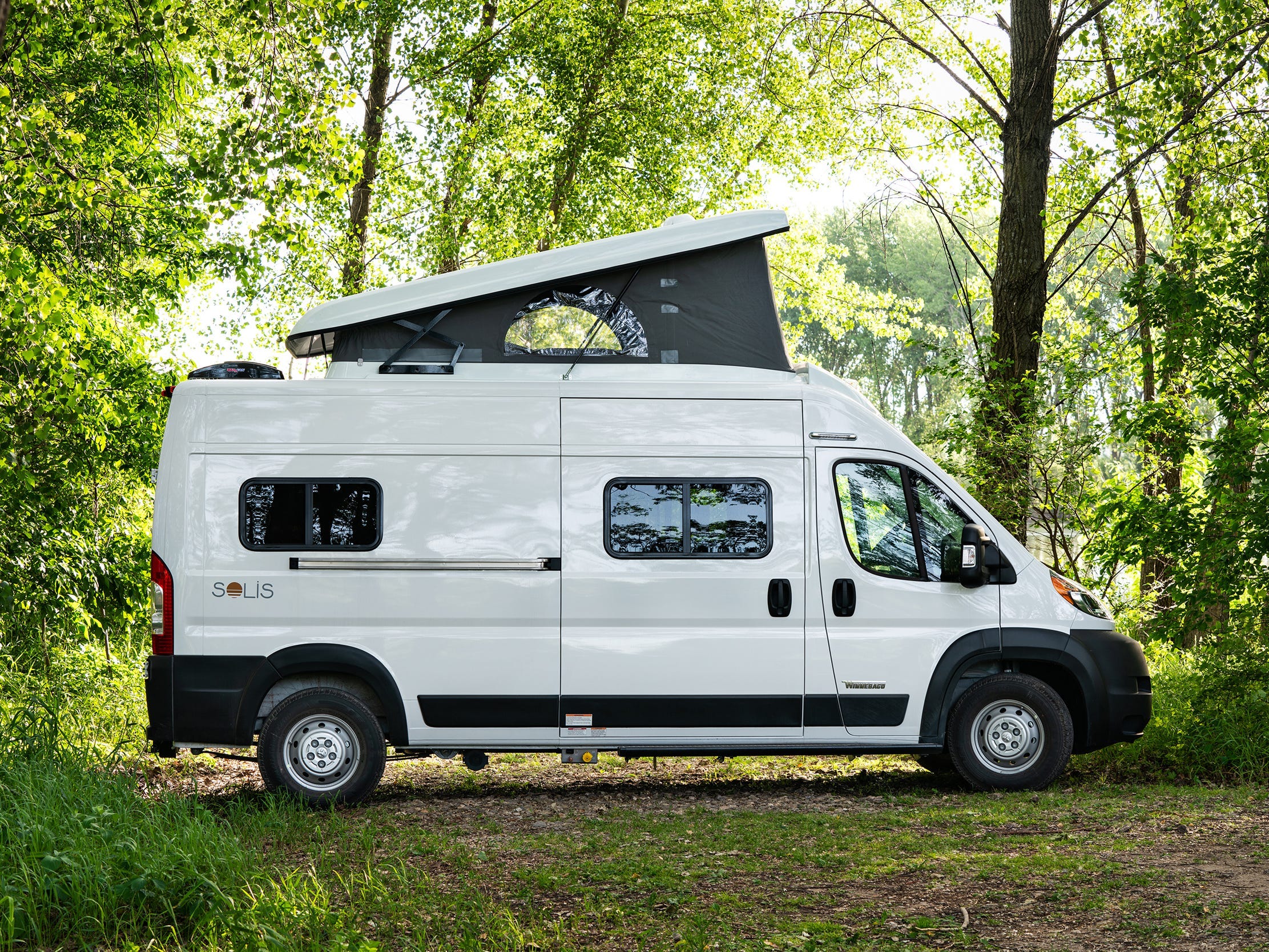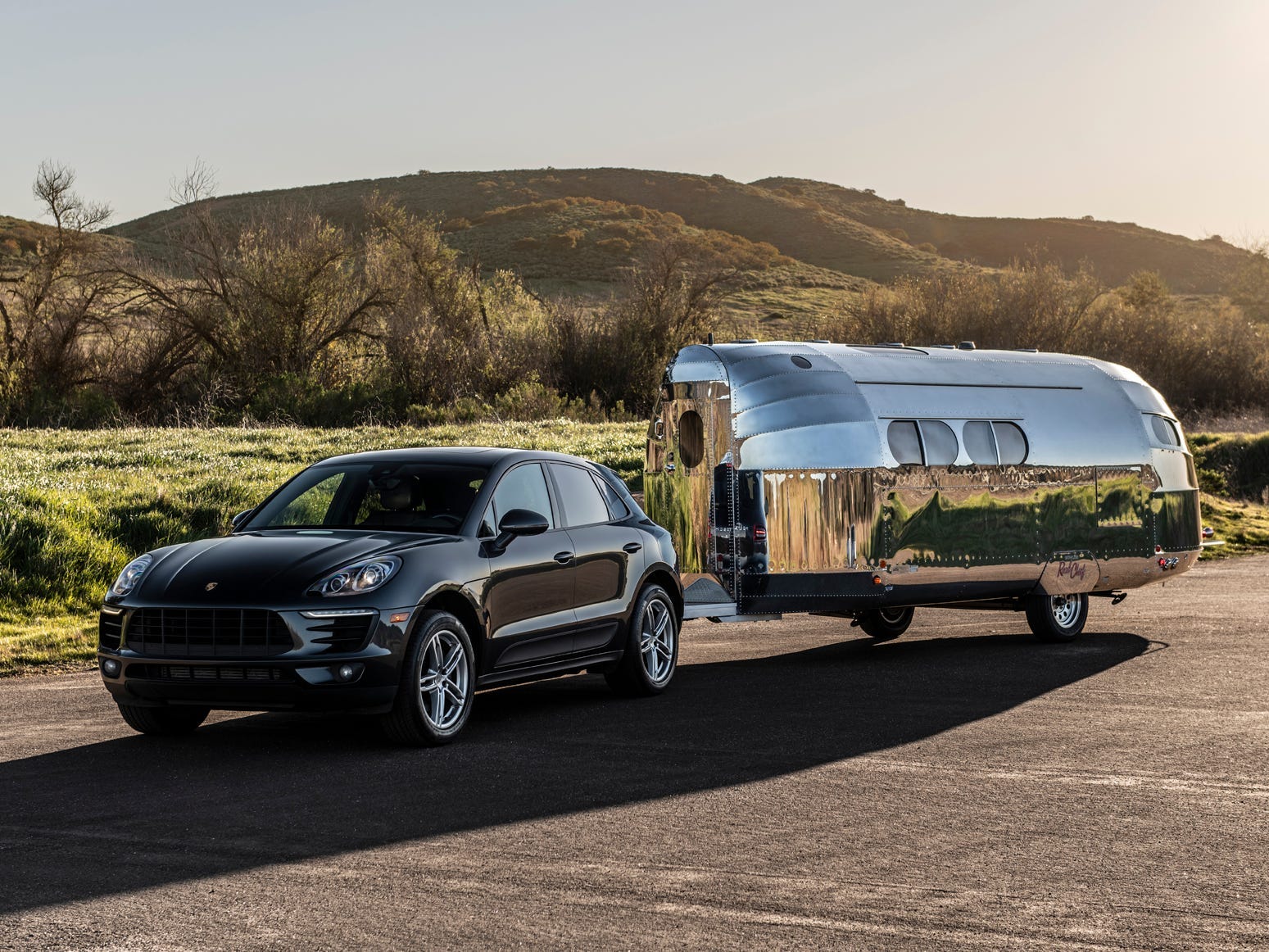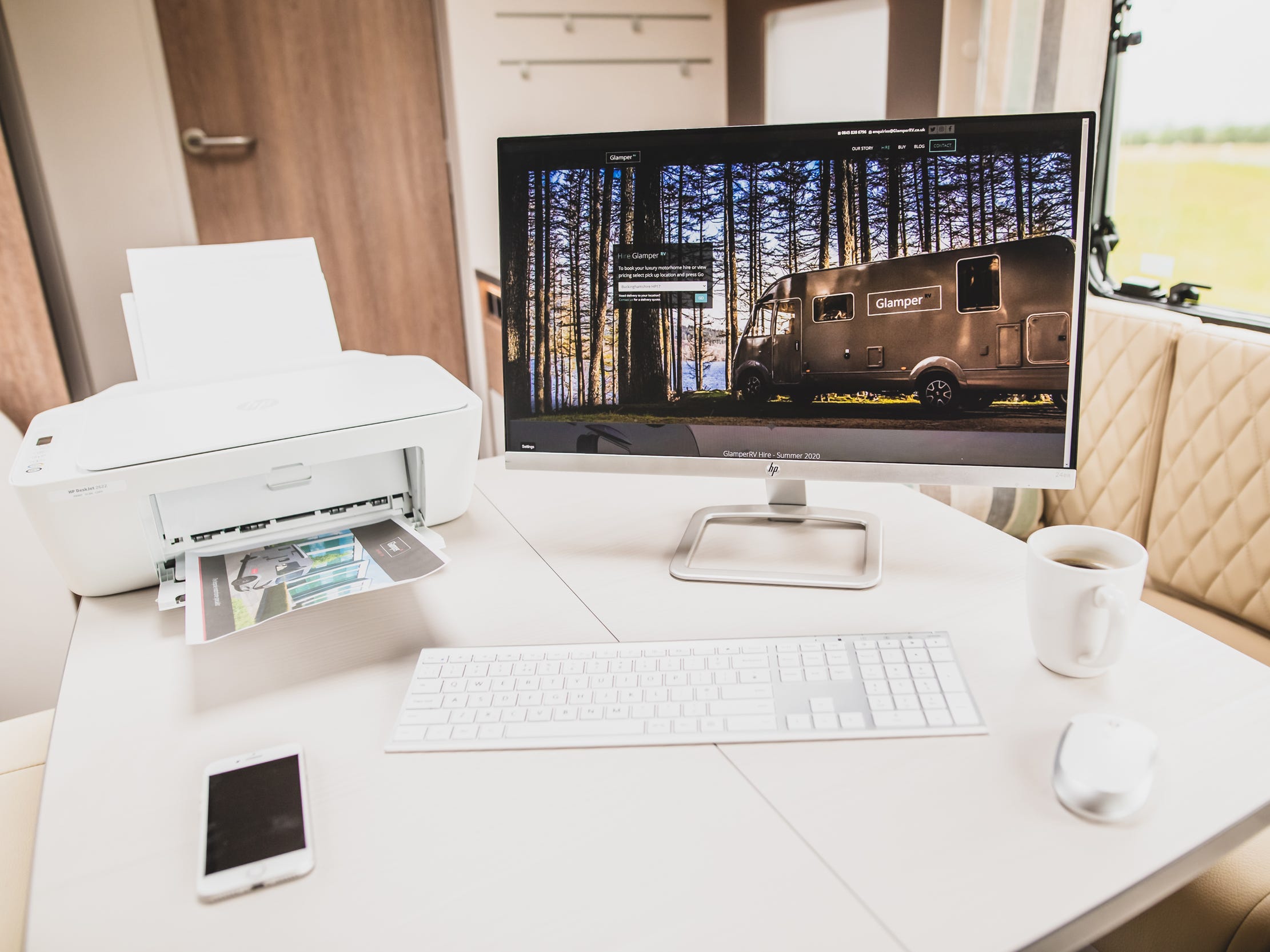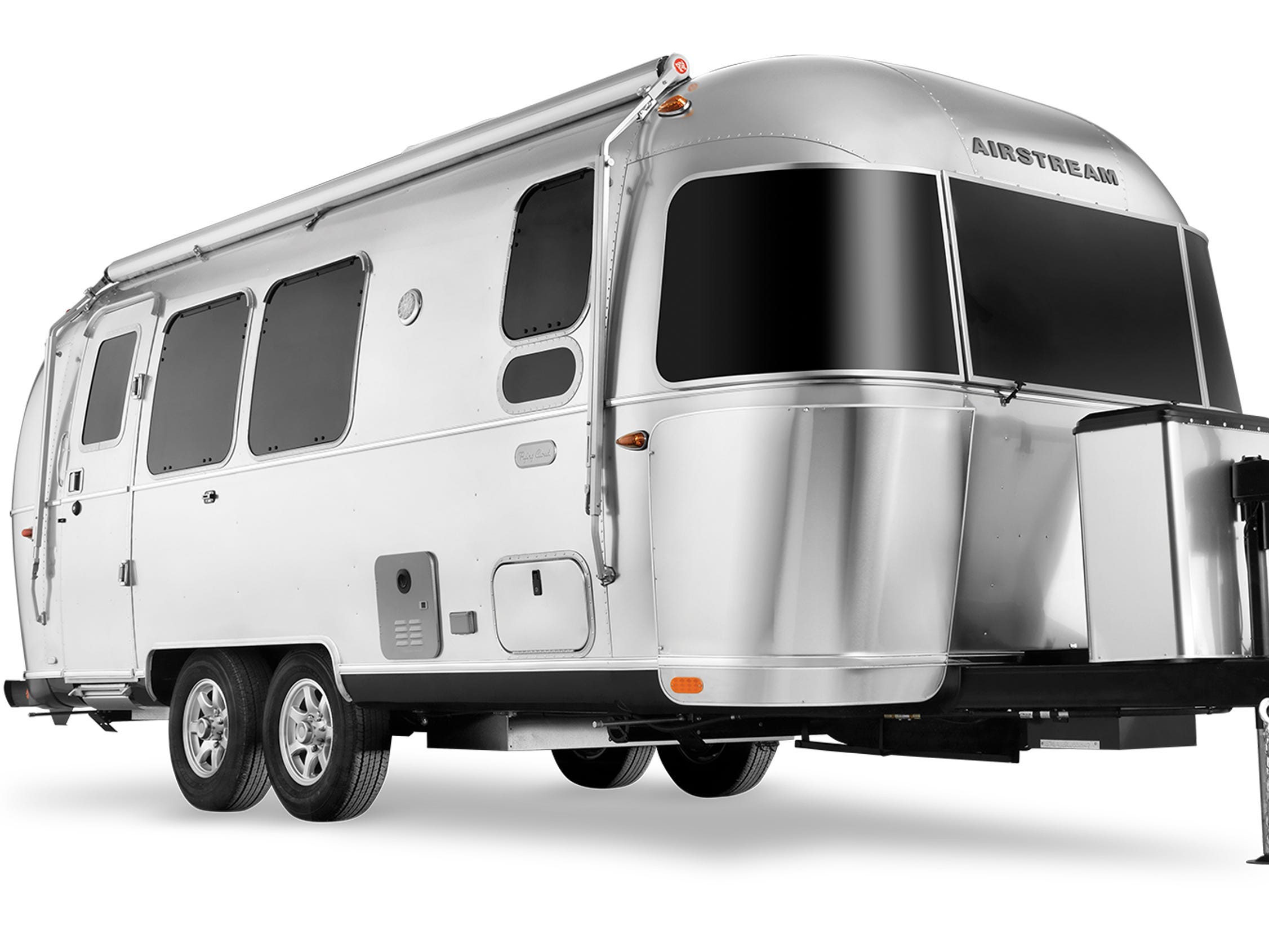
Blacksford
- The pandemic and the subsequent rise in remote workers has encouraged many Americans to take up the “digital nomad” or “work from anywhere” lifestyle.
- Many camper van, RV, and travel trailer makers have noticed the rising popularity of this community and are tapping into the potential client base by adding updates on existing builds or creating new floor plans.
- Companies like Bowlus Road Chief and Leisure Travel Vans already have remote work-friendly builds, but will continue adding updates as needed.
- Road travel makers Winnebago and Airstream are taking a different approach by creating completely new designs, some of which will be unveiled soon.
- Visit Business Insider’s homepage for more stories.
Many RV, camper van, and travel trailer makers have started catering their road travel builds to accommodate the rising popularity of digital nomads and “work from anywhere” crowd amid the pandemic.
A study by MBO Partners found that 4.8 million Americans called themselves “digital nomads” in 2018. And now that the pandemic has forced 42% percent of US workers to work from home full-time — according to data from Stanford economist Nicholas Bloom — this number may continue skyrocketing.
It’s also no industry secret that the pandemic and this subsequent work from home movement has caused a road travel reawakening among Americans. In recent months, many camper van and RV makers have reported skyrocketing interest messages, inquiries, and sales amid the pandemic’s presence in the US.
This rise in sales amid an unprecedented time, combined with an increasing number of permanent and long-term remote workers, has put a spotlight on the digital nomad community. And despite how recent this development has been, the impact can already be seen by camper van rental platforms such as Europe-based Indie Campers, which reported a 66% increase in requests from digital nomads looking to book camper vans from July to September comparing data from 2019 to 2020.
As a result, this popular trend is now being observed and tapped into by the industry that enables the “work from anywhere” community.
This includes Ram Promaster van conversion company Dave and Matt Vans, which has about a quarter of its customer base using its vans for digital nomad purposes, according to the company.
"Particularly since COVID, it's been really cool to track the clients who use [our] vans to work remotely," Matt Felser, co-founder of Dave and Matt Vans, told Business Insider. "They still have a home base, whatever that may be, but they have identified the van as their chance to be able to go to the mountains for a week at a time … [and] do their job, and have purchased these vehicles to work remotely for weeks at a time."
Old amenities for a new market
Several road travel makers, such as Dave and Matt Vans, have been in the "work from anywhere" market since before the pandemic by including amenities like bathrooms, tables, and internet and phone connectivity packages.

Bowlus Road Chief
For these makers, it's more about adding updates as they come instead of completely changing any existing floor plans.
"The customer we designed for's ultimate vacation does include still being connected in some way," luxury trailer maker Bowlus Road Chief's CEO Geneva Long told Business Insider.
According to Long, Bowlus Road Chief's Endless Highways trailer already has a floor plan that is suitable for remote digital nomads. Therefore, instead of creating a new product that will only cater to the "work from the road" crowd, the company could add updates to its existing trailer. This includes, for example, the potential addition of a stronger WiFi router than the one already currently included, if one becomes available in the market.
The "update-based" model is also being employed by Leisure Travel Vans, which once specialized in building a wide variety of RVs and travel trailers before pivoting to smaller luxury Class C RVs — such as the Unity RV — in order to match the recent rising demands of smaller van-based builds.
"[The updates] are continuing, and it's always going to be continuing," Dean Corrigal of Leisure Travel Vans told Business Insider. "It's a big growing segment."
According to Corrigal, about 30 to 40% of emails that Leisure Travel Vans has been receiving have come from customers who have asked specifically about the vans' mobile office capabilities.
As of now, the company estimates that 20% of its customers are currently using their Leisure Travel Vans as a mobile office, but Corrigal predicts this number will continue increasing in the future.
"It's a huge amount of first-time buyers sending request emails to us ... people that want to work from their RVs are right behind that," Corrigal said. "I think it's a huge growing segment, and the longer this COVID-19 thing lasts, the more the RV industry is going to go forward and push in sales."
New amenities for old players
Moving forward, several other makers who haven't traditionally catered their products to the digital nomad segment will now start planning updates and floor plans in-part around the community.

GlamperRV
Some road travel makers have altered the design of their tiny homes on wheels to be remote work-friendly. This includes GlamperRV's $93,450 Business Line RV, which was created amid the pandemic to meet the demands for "flexible home offices," according to the UK-based RV maker.
"As we learned more about the Class B van business, we started to see those demands for connectivity," vice president at Winnebago Brian Hazelton told Business Insider. "That customer group was really pushing us to do … a lot of those things before the COVID pandemic started.
"But obviously with COVID, we're ramping up the pace and really trying to look at the product and say, 'Okay, how can we not take the traditional RV and make it into an office, but maybe start designing the office and make it into a traditional RV'," Hazelton continued.
For Winnebago, this means designing an office-capable RV — or updating prior builds — with options like improved soundproofing, quieter power systems, and ergonomic seating.
The motorhome maker has yet to implement all of these changes amid the pandemic, especially because Winnebago wants to create a space that is customizable by offering different floor plans, according to Hazelton. It has, however, recently included remote work-friendly ticket items — such as larger countertops and a quieter generator — into several of its currently existing builds, and will be revealing new products in the fall.
RVs now need to be designed to work in
"Work from home is now one of the big boxes that product development has to check when they're considering a new product," Hazelton said.

Airstream
Airstream is also taking a similar approach to Winnebago by updating existing floor plans to be more inclusive of the remote workers segment, president and CEO of Airstream Bob Wheeler told Business Insider.
According to Wheeler, the road travel company was originally planning to cater to its existing "work from anywhere" client base, but the pandemic expedited these plans.
"We tried to look at some of our floor plans and say, 'where could we carve out a dedicated work area so you don't have to clean up your workday in order to have a meal [at the dinette table]?'" Wheeler said.
The new layouts will feature a compact desk with "stowaway seating", USB and 110-volt outlets, and desk storage. But in order to create space for the desk, the company will have to make adjustments to pre-existing amenities, such as decreasing the size of dinettes or removing a secondary bed.
According to Wheeler, the Airstream is hoping to have these new floor plans available by this month. As of now, it will only be in the Flying Cloud travel trailer, specifically in the 30-foot option, 27-foot front bedroom, 25-foot front bedroom, and 23-foot corner bed floor plans.
"It's not overkill," Wheeler said. "You don't need a five-foot-wide slab [desk] in your travel trailer, but we find that when we talk to people about the option to have this area where they can set up and leave their work set up and still live in the rest of the trailer, that's really appealing."

